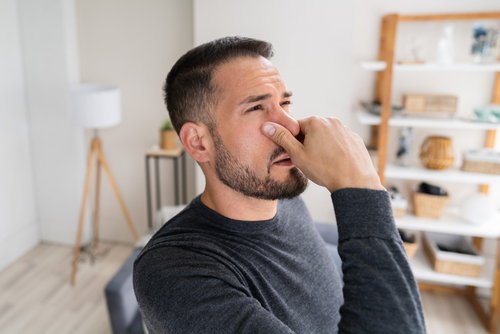Written on: January 29, 2024
 Propane leaks are rare, but they can happen. They can be caused by a runout or near-runout, when pressure changes in lines cause joint compound at connections to contract, or by incorrectly installed equipment, among other things.
Propane leaks are rare, but they can happen. They can be caused by a runout or near-runout, when pressure changes in lines cause joint compound at connections to contract, or by incorrectly installed equipment, among other things.
Propane is naturally odorless, so in order to make it easy to detect leaking gas, propane and natural gas distributors use an additive called mercaptan to give it a distinctive smell. Most people describe it as smelling like rotten eggs, skunk or dead animal.
Mercaptan is a natural gas that is produced by decaying plants, animals and humans (fun fact—it’s one of the compounds responsible for bad breath!). One reason it’s used in propane and natural gas is that the human nose can detect it in extremely small quantities.
Knowing what to do if you smell gas can help ensure the situation is resolved safely and quickly.
Make sure everyone in your home can recognize the odor. If you smell gas:
If you smell gas and suspect a leak, turn off the gas at the tank (if it’s safe to do so). You should also shut off your tank if there has been severe weather, flooding, or a natural disaster and your tank appears to have moved, or if there appears to be damage to the tank or the gas lines. It’s not hard—but it’s important to familiarize yourself with your tank so you know what to do when it’s an emergency.
If it feels unsafe to turn off the gas, first move a safe distance away and outside and then call for help.
Learn more about propane safety and what to do if you smell gas. Your safety is our priority: If you have any questions about this information or any other propane safety issues, contact us.